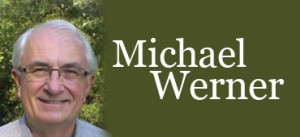Our Pragmatist Tradition

A college student recently asked me, “How do you humanists know what’s true?” It’s an honest question, not given to simple answers. While individual humanists hold many theories of what’s true, the humanist tradition has certainly been centered on pragmatic theories of truth, which state that if something is useful in a meaningful way, then it’s true.
John Dewey, a signer of Humanist Manifesto I, viewed truth as a “warranted assertion.” We need solid reasons to believe, and science is the best (but not the only) way to understand the facts of the world. Dewey thought that the application of scientific knowledge to human affairs would improve human life by revealing which values we should enhance and nurture in concert with our evolving cultural knowledge. The pragmatic tradition was embraced by other important humanists. Sidney Hook and Corliss Lamont studied under Dewey, and Paul Kurtz and Richard Rorty were both students of Hook.
Pragmatism has taken on greater meaning in recent years as it avoids the radical relativism of postmodernism. However, pragmatism understands that neither rationalism nor science can give us certain grounding of the world. The relativist descends the staircase of anti-foundationalism toward nihilism. The pragmatist offers a staircase toward the light, asking what works toward human and global welfare. Pragmatism offers knowledge that is always provisional, fallible, and probabilistic, but that works.
If there are no certain or firm foundations for either facts or values, then why should we not slip totally into relativism? What supports facts and values, ethics and science? The answer is that both facts and values are emergent properties that are “bootstrapped” and they grow from what works. Science is ultimately supported because it works. So, too, our values emerge from the civilization’s accumulated wisdom of what works as expressed in everything from simple aphorisms (like “A stitch in time saves nine”) to the complexities of democracy. We humanists affirm our dedication to truth and values that have survived a Darwinian battle of what’s best.
But how does this work? Consider the important humanist ethical principle of affirming the inherent worth and dignity of each person. We hold this out of neither a rationalistic nor a scientific grounding. Yes, we can give rational and scientific reasons, but they aren’t the foundation of this idea. We came to this ethical principle from integrating all of our knowledge of history, human psychology, the philosophy of Immanuel Kant, the vast literature of oppression (A Tale of Two Cities, To Kill a Mockingbird, The Adventures of Tom Sawyer, and Gulag Archipelago to name a few), and, most importantly, our own experience with oppression. We’ve learned that affirming each person’s equal moral worth is an idea that works. It’s prescriptive, not descriptive, and is one of civilization’s greatest insights if we choose to use it.
Dewey saw that philosophy contained a lot of “useless lumber.” He did not find abstract ideology helpful, but instead believed values could be evaluated only through concrete social experience. According to Dewey, the social is how we understand ourselves and the social is how philosophy must now direct itself. Truth is what happens to an idea when it is verified with reality, not in an abstract sense, but in a real, practical sense. Still, discovering the truth of matters is only the beginning of our task toward the good society and better lives. It’s only through actual practice that we make ideas and ideals real.
Dewey heavily criticized both supernaturalism and mere atheism. He took Nietzsche’s challenge seriously that even if God were dead, we’d still need a sense of the whole. We’d need ideals that unify the self. We’d need to build ideals of our deepest commitments that weave a sense of the connected whole that directs our lives and gives us meaning and purpose. The interplay of science and culture points us toward the best ideals, which are evolving as we and society evolve. Dewey challenged us to build a worldview of higher values that evoke in us a greater sense of the whole and that bring about real progressive change in ourselves and the world. John Dewey called that humanism.
